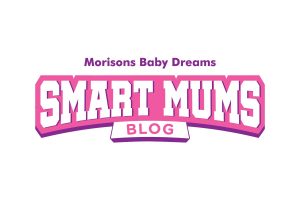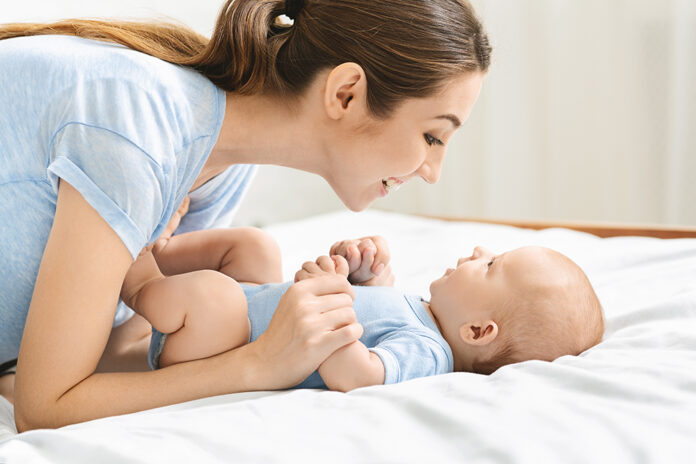This post is also available in: English
Your baby will probably say their first word around their first birthday. And in the following months, will quickly turn into an entertaining chatterbox.
If you are eager for this to happen as soon as possible, here are some things you can do:
At birth
Get a hearing test done at birth. Your baby must hear sounds and words clearly to talk.
From birth to 3 months
- Respond immediately when your baby cries.
Crying is the first way your baby communicates with you. When you respond, it shows your baby that you are listening and encourages them to learn how to talk.
- Sing to your baby.
Songs help babies learn words because they are repeated frequently. Sing to your baby at bedtime, bath time and massage time.
- Talk to your baby.
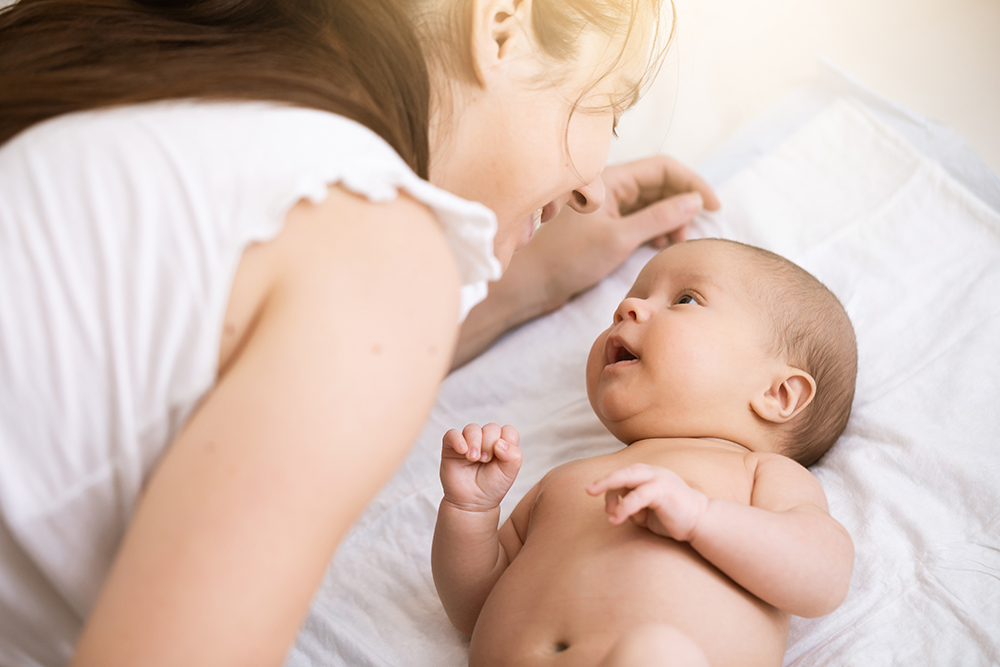
Bring your baby close, look into their eyes and speak in a high-pitched sing-song voice. Pause and speak slowly. This style of speaking is called ‘parentese’. Babies learn words quickly when you do this.
- Read to your baby.
Be dramatic when you read.
From 3 months to 6 months
- Listen to your baby.
Your baby will start babbling. Respond to their cooing and babbling by imitating their sounds.
- Put their babbling into words.
Use your imagination to decode your baby’s babbling and say it to them in words.
From 6 months to 1 year
- Listen to their gestures.
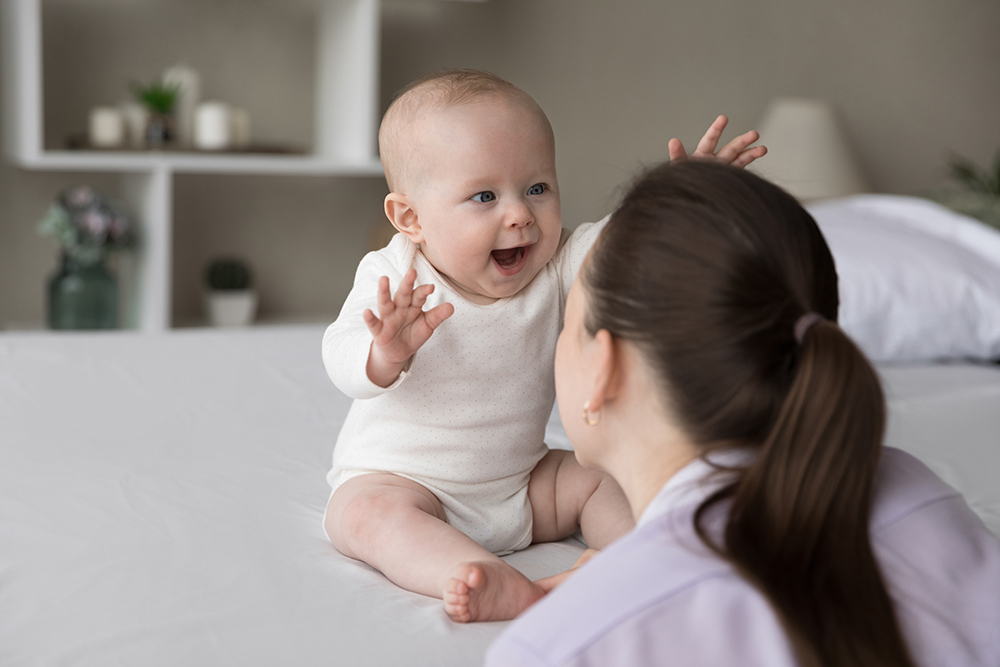
When your baby shows you what they want with gestures, put it into words. If they lift their arms when they want you to carry them, say “You want Mamma to pick you up?” and then pick them up.
- Ask questions.
Ask questions like “Where is Mamma?”. Your baby will look towards you and point. This helps strengthen their knowledge of the meaning of various words in their vocabulary.
- Show them new ways to communicate through gestures.
For example – teach your baby how to wave “bye-bye.”
From 12 months to 2 years
- Expand your baby’s vocabulary.
When your baby says “cup” – say “Do you want your cup? Do you want it empty? Or do you want milk in it?
- Ask your baby for help.
As your baby starts moving around ask them to bring you things. Say “Can you bring me your cup from the table please?”
- Teach songs and rhymes.
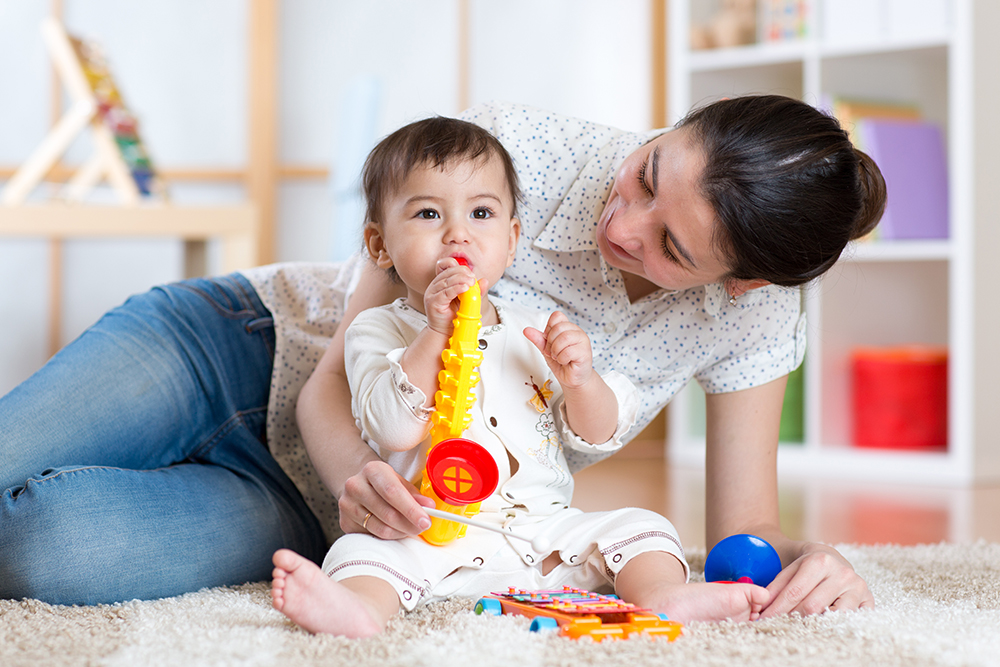
This will help your baby build their vocabulary and improve their pronunciation.
- Engage in pretend play.
Let your baby pretend to be you and use the words you use. Your baby will learn how to talk when they have lots of other children and adults to talk to. So, ensure that your child has many opportunities to interact with other children and adults. Most importantly ensure that your baby does not have any screen time.
Learning how to speak is an important milestone and your baby requires your active participation to achieve it. Enjoy the process of helping your baby achieve this milestone.
By
Dr. Debmita Dutta MBBS, MD
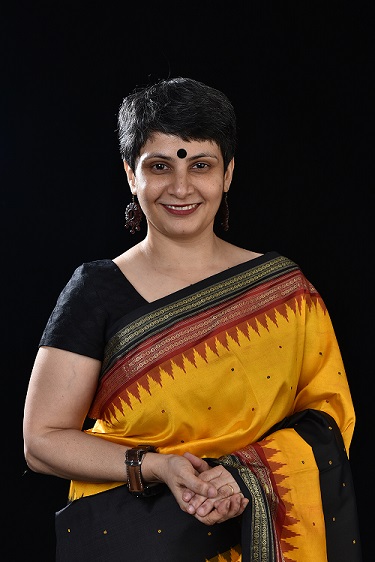
Dr. Debmita Dutta MBBS, MD is a doctor, a parenting consultant, and the founder of WPA whatparentsask.com She conducts online and offline workshops on parenting for schools and corporate organisations. She also conducts online and offline prenatal and infant care classes. She is a well-known thought-leader in parenting and an expert on play, learning and eating habits. She is the author of 7 books on parenting published by Juggernaut Books and her books are among their most read books. She is frequently quoted in national and international publications of repute for her empathetic and compassionate approach and her application of physiology and neuroscience to parenting.
This post is also available in: English
